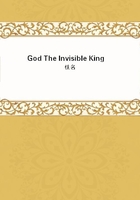But, it may be asked, if, to the orthodox, revealed religion was sacrosanct and savage religion a thing beneath consideration, why did not the sceptics show a more liberal spirit, and pursue to their logical issue the conjectures they had individually hazarded? The reason is simple and significant. The sceptics too had not worked free from the presupposition that the essence of religion is dogma. Their intellectualism, expressive of the whole eighteenth century, was probably in England strengthened by the Protestant doctrine of an infallible Book. Hume undoubtedly confused religion with dogmatic theology. The attention of orthodox and sceptics alike was focussed on the truth or falsity of certain propositions. Only a few minds of rare quality were able dimly to conceive that religion might be a necessary step in the evolution of human thought.
It is not a little interesting to note that Darwin, who was leader and intellectual king of his generation, was also in this matter to some extent its child. His attitude towards religion is stated clearly, in Chapter VIII. of the "Life and Letters". (Vol. I. page 304. For Darwin's religious views see also "Descent of Man", 1871, Vol. I. page 65; 2nd edition. Vol. I. page 142.) On board the "Beagle" he was simply orthodox and was laughed at by several of the officers for quoting the Bible as an unanswerable authority on some point of morality. By 1839 he had come to see that the Old Testament was no more to be trusted than the sacred books of the Hindoos. Next went the belief in miracles, and next Paley's "argument from design" broke down before the law of natural selection; the suffering so manifest in nature is seen to be compatible rather with Natural Selection than with the goodness and omnipotence of God. Darwin felt to the full all the ignorance that lay hidden under specious phrases like "the plan of creation" and "Unity of design." Finally, he tells us "the mystery of the beginning of all things is insoluble by us; and I for one must be content to remain an Agnostic."The word Agnostic is significant not only of the humility of the man himself but also of the attitude of his age. Religion, it is clear, is still conceived as something to be KNOWN, a matter of true or false OPINION. Orthodox religion was to Darwin a series of erroneous hypotheses to be bit by bit discarded when shown to be untenable. The ACTS of religion which may result from such convictions, i.e. devotion in all its forms, prayer, praise, sacraments, are left unmentioned. It is clear that they are not, as now to us, sociological survivals of great interest and importance, but rather matters too private, too personal, for discussion.
Huxley, writing in the "Contemporary Review" (1871.), says, "In a dozen years "The Origin of Species" has worked as complete a revolution in biological science as the "Principia" did in astronomy." It has done so because, in the words of Helmholtz, it contained "an essentially new creative thought," that of the continuity of life, the absence of breaks.
In the two most conservative subjects, Religion and Classics, this creative ferment was slow indeed to work. Darwin himself felt strongly "that a man should not publish on a subject to which he has not given special and continuous thought," and hence wrote little on religion and with manifest reluctance, though, as already seen, in answer to pertinacious inquiry he gave an outline of his own views. But none the less he foresaw that his doctrine must have, for the history of man's mental evolution, issues wider than those with which he was prepared personally to deal. He writes, in "The Origin of Species" (6th edition, page 428.), "In the future I see open fields for far more important researches. Psychology will be securely based on the foundation already well laid by Mr Herbert Spencer, that of the necessary acquirement of each mental power and capacity by gradation."Nowhere, it is true, does Darwin definitely say that he regarded religion as a set of phenomena, the development of which may be studied from the psychological standpoint. Rather we infer from his PIETY--in the beautiful Roman sense--towards tradition and association, that religion was to him in some way sacrosanct. But it is delightful to see how his heart went out towards the new method in religious study which he had himself, if half-unconsciously, inaugurated. Writing in 1871 to Dr Tylor, on the publication of his "Primitive Culture", he says ("Life and Letters", Vol.
III. page 151.), "It is wonderful how you trace animism from the lower races up the religious belief of the highest races. It will make me for the future look at religion--a belief in the soul, etc.--from a new point of view."Psychology was henceforth to be based on "the necessary acquirement of each mental capacity by gradation." With these memorable words the door closes on the old and opens on the new horizon. The mental focus henceforth is not on the maintaining or refuting of an orthodoxy but on the genesis and evolution of a capacity, not on perfection but on process. Continuous evolution leaves no gap for revelation sudden and complete. We have henceforth to ask, not when was religion revealed or what was the revelation, but how did religious phenomena arise and develop. For an answer to this we turn with new and reverent eyes to study "the heathen in his blindness" and the child "born in sin." We still indeed send out missionaries to convert the heathen, but here at least in Cambridge before they start they attend lectures on anthropology and comparative religion.
The "decadence" theory is dead and should be buried.
The study of primitive religions then has been made possible and even inevitable by the theory of Evolution. We have now to ask what new facts and theories have resulted from that study. This brings us to our second point, the advanced outlook on religion to-day.















